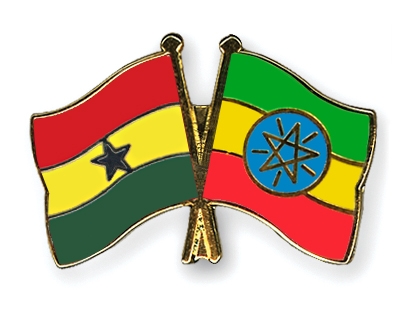African economies have been resilient, showing continuous growth in most sectors the long term economic outlook for the continent looks promising. Real output growth is expected to grow to 4.1% throughout 2018. Ghana and Ethiopia specifically face several challenges and opportunities for the future.
Based on reports from the Aspen Network of Development Entrepreneurs, The World Bank, KPMG and the UN, we’ll discuss the economic outlook, the challenges they face, opportunities and possible solutions to accelerate entrepreneurship and innovation in Ghana & Ethiopia.
Overview of Ghana
Ghana’s economy expanded for the fifth quarter in a row leading into Q2 of 2018. The rate of growth is almost double what it was in 2016 to 6.9%. Their trade balance has shifted to a surplus and the rate of inflation is expected to fall under 10%. There remains a fiscal deficit but outlooks into domestic resource mobilization expenditure control show that balancing is not out of reach. The country relies heavily on volatile commodities such as gold, coacoa and oil, adding a level of uncertainty to international trade. Ghana’s agricultural sector is an upcoming, and major driver in the growing economy. Leveraging new technologies and focusing on agriculture will be a key factor in growing GDP, reducing poverty and decreasing unemployment.
Overview of Ethiopia
In 2017, Ethiopia was the world’s fastest growing economy. The countries GDP is expected to slow from a growth rate of 10.9% in 2017 to 9.6% in 2018. Described as strategic sectors, telecom, utilities and transportation operate as strict public monopolies. World Bank reports that despite growth, there is still an underdeveloped private sector that lacks competitiveness. Private companies are finding that there is a lack of skilled human resources and knowledge around using available technologies. Private businesses also face difficulties in obtaining loans and financing. Focusing on financial instruments and supporting the service industry can unlock huge potential in the country.
Issues & Opportunities of Ghana
Challenges entrepreneurs face range from a lack of collaboration among actors to difficulty obtaining financial support. As mentioned by the World Bank, unlocking opportunities in agriculture through entrepreneurial initiatives could help make major changes to the dynamic and ecosystem of Ghana. Agriculture has a large multiplier effect, creating 750 jobs per $1 million of output. Government expenditures should be spent to help boost the cocoa trade and help farmers in order to produce more and raise GDP.
Entrepreneurship is looking up in Ghana, as the government is committed to supporting new businesses. Obtaining investments for co-working spaces to aid collaboration and entrepreneurship can help close the existing infrastructure gap, while connecting actors to support innovation. The only existing entrepreneurial hub or co-working spaces exist in main hubs around Ghana, expanding these to other locations can support GDP and entrepreneurship. Ghana is also very open to foreign investments, highlighting another opportunity to support local businesses and startups.
Issues and Opportunities in Ethiopia
Difficulty in obtaining loans is a major restriction to growth for entrepreneurs. Businesses could be much more efficient if there were more funding available to purchase new equipment. Currently, it is nearly impossible to gain funding without a substantial amount of collateral. If a poor farmer with minimal assets wanted to obtain credit to farm more, and more efficiently the only way he or she could obtain the equipment is by using any and all of his assets as collateral. If weather doesn’t permit and there’s a drought, not enough rain, adverse effects due to climate change, the farmer risks losing not only his home, but also his land. A more open, less restrictive loan program that allows smaller, more manageable loans that include risk assessment for weather patterns could have great outcomes on the economy of Ethiopia. Foreign investments must be at minimum $200,000, making it very difficult to obtain any type of funding for a new business or venture.
The monopolistic government in Ethiopia controlling the internet market also marks a constraint. Allowing for competition, foreign providers would decrease the cost of internet and improve the speed, unlocking so much potential for education, healthcare and trade. With a young population, it is important for Ethiopia’s government to harness the power and creativity of the youth by offering entrepreneurship classes, and adding more practical training into the school system rather than all theoretical. Allowing more credit and supporting entrepreneurship will be important to keep Ethiopia as one of the fastest growing economies in the world.

